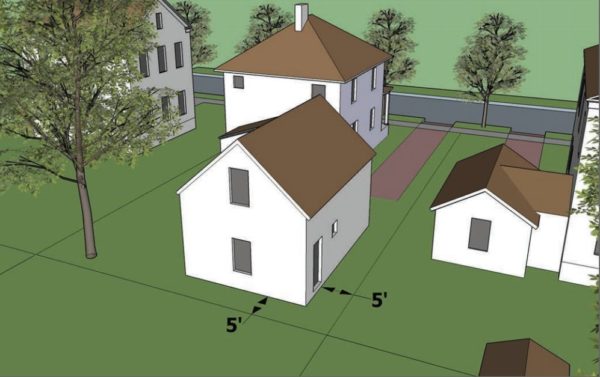The Arlington County Board is scheduled to vote Saturday (May 18) on a series of changes that would loosen restrictions on Accessory Dwelling Units (ADUs).
ADUs are residential dwellings built on existing properties that are separate from the primary residence, like a basement apartment or a standalone structure — sometimes called a “granny flat.”
The County Board first approved standards for accessory dwellings in 2008. The Affordable Housing Master Plan in 2015 urged the creation of more ADUs as a low-cost way to boost housing options in Arlington. Regulations were loosened in 2017, but those changes only impacted apartments created within single-family homes, like in a garage or attic.
Staff at the May 6 Planning Commission meeting said there have been 10 new ADUs approved in Arlington since Jan. 1, 2018, demonstrating that there is some local interest in these types of residential units.
At that time, staff had recommended ADUs with a 1-foot side and rear setback from the property line, but the Board rejected it. Now staff is recommending a 5-foot setback, which they say is enough to mitigate the impact on a neighbor’s property but gives the homeowner enough flexibility within their own property.
Staff estimated between 37 percent and 44 percent of lots in Arlington could accommodate a detached accessory dwelling.
“The proposed zoning ordinance amendments would enable the construction of new detached accessory dwellings and reduce barriers to the conversion of existing accessory buildings into accessory dwellings,” staff said in a report. “The proposed amendment balances design flexibility, privacy and separation concerns, and the county’s housing goals.”
The project has attracted some concerns from both sides of the discussion. At the Planning Commission meeting, a local resident, whose accessory dwelling permit was denied last year, said he was excited for the new ordinance, but was frustrated that ADUs were subject to regulations like annual inspections.
Meanwhile, earlier discussions about ADUs exposed concerns from some residents that the new buildings could increase density and crowding in residential neighborhoods and have negative impacts on trees, stormwater management, noise, privacy, traffic and parking. Concerns were also expressed about ADUs being used as short-term rental units offered through services like Airbnb.
Photo via Arlington County


